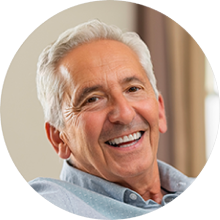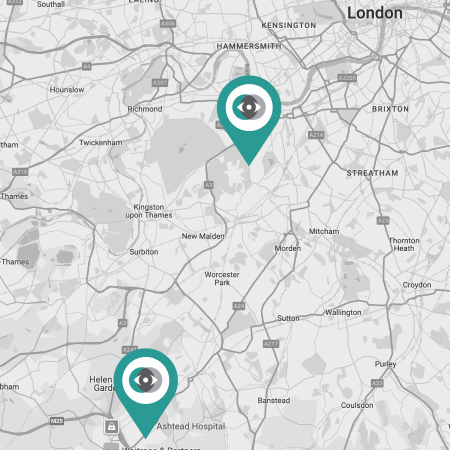
How to prevent cataracts?
Cataracts are the most common cause of vision loss in older adults. But is there anything you can do to prevent them?
While cataracts can’t always be avoided entirely, especially as you age, there are steps you can take to slow their development and protect your vision for as long as possible.
In this blog, we’ll explore what causes cataracts and share practical lifestyle tips that may help keep your eyes clearer for longer.
What are cataracts?
Cataracts occur when the natural lens in your eye becomes cloudy. This process usually happens with age, but it can also be linked to:
- Sun exposure
- Smoking
- Diabetes
- Certain medications (like steroids)
- Eye injuries or surgeries.
Once a cataract forms, it won’t go away on its own. The only way to treat it is through surgery.
Can cataracts be prevented?
There’s no guaranteed way to prevent cataracts entirely—but by protecting your eyes and your overall health, you may delay their onset or slow their progression.
9 ways to reduce your cataract risk
1. Wear sunglasses
UV light can speed up cataract formation. Wear sunglasses that block 100% UVA and UVB rays whenever you’re outdoors.
2. Stop smoking
Smoking increases your risk of cataracts. If you smoke, quitting is one of the best things you can do for your eyes (and your overall health).
3. Eat a healthy, colourful diet
Foods rich in antioxidants—like spinach, carrots, oranges, and blueberries—support eye health. Vitamins C and E, lutein, and zeaxanthin may all help.
4. Control medical conditions
High blood sugar and high blood pressure can contribute to cataract development. Keep conditions like diabetes and hypertension well-managed.
5. Limit alcohol intake
Heavy alcohol use has been linked to faster cataract development. Moderate your intake to support long-term eye health.
6. Protect your eyes from injury
Eye injuries can trigger early cataracts. Use protective eyewear when playing sports, doing DIY, or working in dusty environments.
7. Review your medications
Long-term use of steroids (like prednisone) can increase cataract risk. Speak with your doctor about possible alternatives if needed.
8. Get regular eye exams
Early cataracts may not cause symptoms. Regular check-ups help catch changes early so your care can be tailored accordingly.
9. Stay active and maintain a healthy weight
Exercise improves circulation and reduces inflammation—both of which are good for your eyes.
What about supplements?
Some studies suggest that antioxidants and certain vitamins may help reduce cataract risk. However, supplements shouldn’t replace a healthy diet. If you're considering them, speak with your doctor first.
When prevention isn’t enough
Even with excellent lifestyle habits, cataracts can still develop over time. Ageing is the biggest risk factor—and no one is immune.
The good news? Cataract surgery is safe, quick, and highly effective.
With modern lens implants, especially those used in private surgery, many people even find they see better after surgery than they did before cataracts began.
When to consider surgery
You may benefit from cataract surgery if:
- Vision feels cloudy or dim
- Lights seem too bright or create halos
- You struggle to read, drive, or work comfortably
- Glasses no longer seem to help.
Why choose Professor Paul Ursell?
As a specialist in private cataract and lens surgery, Professor Ursell provides expert care, clear communication, and access to premium lens options tailored to your lifestyle.
His patients often describe the experience as life changing—restoring not just vision, but confidence and independence too.
Final thoughts
While you can’t stop cataracts entirely, you can take steps to protect your eyes and delay their development. And when the time comes, you have the option of advanced, personalised care through private surgery.
Take the suitability self-test to see if you're ready to explore your cataract treatment options.
Are you suitable for vision correction surgery?
It isn’t suitable for everyone.
The first step is to book an assessment so you can find out whether you can benefit.
Our most popular procedures
What our patients say…
★ ★ ★ ★ ★“Excellent result. Complete confidence in Paul Ursell. Quiet, quick, and efficient. Peaceful and comfortable hospital.”
★ ★ ★ ★ ★
“The cataract surgery on both of my eyes went very smoothly without any problems. There was no pain afterwards and I didn’t have to wear any eyepatch. I would highly recommend Professor Ursell for cataract surgery.”
★ ★ ★ ★ ★“Highly professional, extremely efficient, and an excellent communicator, Paul exudes experience, knowledge, and ability. The whole process — initial consultation, operation, and post-op check-up — was wonderfully stress-free. I now have 20/20 vision, am glasses-free, and I am delighted by the results.”
★ ★ ★ ★ ★
“The cataract surgery has completely changed my life. Mr. Ursell put me at ease and explained all options. The procedure was quick and painless and completely successful, and I now have 20/20 vision in my good eye. One of the reasons I had the surgery was because of Mr. Ursell’s standing and experience. Cannot praise highly enough.”
★ ★ ★ ★ ★
“I was very short-sighted and my cataracts badly affected both reading and distance acuity. After the operation I now have very good distance vision (glasses-free) but still need glasses for reading. (This was the expected outcome as I did not want multi-focus implants). The operation was quick and painless, and I had no post-operative discomfort at all (which surprised me). The results are remarkable.
I can certainly recommend Professor Ursell. He is a personable consultant and a skilled surgeon.”
★ ★ ★ ★ ★
“Dr. Paul Ursell squashed many of my concerns for not having cataract surgery. He offered comfort with examples of his long/distinguished career and new technology that he applies to the surgery.
Both before and after the surgery, Dr. Ursell and staff gave me the information and attention I needed. It was a great success, and I highly recommend Dr. Ursell.”
We have replaced the images of real patients who provided these testimonials to protect their privacy.








